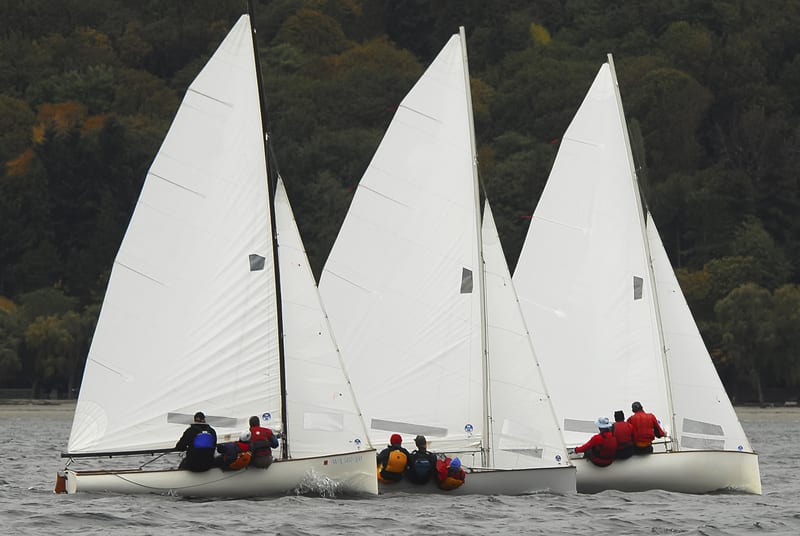Aggrieved heirs of a decedent may wish to file an action to revoke or contest a will in Washington State, on grounds such as undue influence, lack of capacity, fraud, or mistake. Under Washington State law, here is how to revoke a will.
What Are the Grounds to Revoke a Will in Washington State?
Washington state law sets forth a number of grounds upon which to revoke or contest a will, including lack of testamentary capacity, undue influence, and fraud.
Lack of Testamentary Capacity
Under Washington State law, the testator of a will must have capacity for the will to be valid. Pursuant to RCW 11.12.010:
Who may make a will.
Any person of sound mind who has attained the age of eighteen years may, by last will, devise all his or her estate, both real and personal.
All wills executed subsequent to September 16, 1940, and which meet the requirements of this section are hereby validated and shall have all the force and effect of wills executed subsequent to the taking effect of this section.
The meaning of testamentary capacity was explained in the Washington Supreme Court case of In the Matter of the Estate of Ida Bottger, 4 Wn.2d 676 (1942):
[a] person is possessed of testamentary capacity if at the time he assumes to execute a will he has sufficient mind and memory to understand the transaction in which he is then engaged, to comprehend generally the nature and extent of the property which constitutes his estate and of which he is contemplating disposition, and to recollect the objects of his bounty. This is the standard by which courts must measure the facts of each case in which it is contended that an instrument offered or accepted as the will of a decedent was executed at a time when the testator lacked capacity to make a valid testamentary disposition of his property.
Undue Influence
The most common grounds asserted to revoke or contest a will is that the will was the product of undue influence. In many cases, it is common for the contestant to assert undue influence, lack of capacity, and sometimes other grounds as well.
The recent case of Estate of Barnes, 185 Wn.2d 6 (2016) explains the meaning of undue influence in the context of the preparation and execution of a will.
The right to testamentary disposition of one’s property is a fundamental right protected by law. Dean v. Jordan, 194 Wash. 661, 668, 79 P.2d 331 (1938). A will that is executed according to all legal formalities is presumed valid. RCW 11.24.030. Nevertheless, a will executed by a person with testamentary capacity may be invalidated if “undue influence” existed at the time of the testamentary act. In re Estate of Lint, 135 Wn.2d 518, 535, 957 P.2d 755 (1998) (citing Dean, 194 Wash. 661 ). “Undue influence” that is sufficient to void a will must be “something more than mere influence but, rather, influence ‘which, at the time of the testamentary act, controlled the volition of the testator, interfered with his free will, and prevented an exercise of his judgment and choice.”‘ Id. (quoting In re Estate of Bottger, 14 Wn.2d 676, 700, 129 P.2d 518 (1942)). The applicable legal framework for determining whether a will is the result of undue influence was established in our seminal case Dean, 194 Wash. 661. For nearly eight decades, Dean has remained the governing case on undue influence, and it continues to be controlling precedent.
When challenging the validity of a will, the will contestant bears the burden of proving the will’s illegality by “clear, cogent, and convincing” evidence. 5 Dean, 194 Wash. at 669, 671. Circumstantial evidence may be used to establish suspicious facts that raise a presumption of undue influence. In re Estate of Martinson, 29 Wn.2d 912, 914-15, 190 P.2d 96 (1948). If the presumption is raised, the will proponent must produce evidence to rebut the presumption. Dean, 194 Wash. at 672. The absence of rebuttal evidence may be sufficient to set aside a will, but the contestant retains the ultimate burden of proof. Id. The court in Dean identified certain suspicious facts and circumstances that could raise a presumption of undue influence. The most important of such facts are
(1) that the beneficiary occupied a fiduciary or confidential·relation to the testator;
(2) that the beneficiary actively participated in the preparation or procurement of the will; and
(3) that the beneficiary received an unusually or unnaturally large part of the estate.
Added to these may be other considerations, such as the age or condition of health and mental vigor of the testator, the nature or degree of relationship between the testator and the beneficiary, the opportunity for exerting an undue influence, and the naturalness or unnaturalness of the will.
“[C]lear, cogent, and convincing” evidence is a quantum of proof that is more than a preponderance of the evidence, but less than what is needed to establish proof beyond a reasonable doubt. Blandv. Mentor, 63 Wn.2d 150,154,385 P.2d 727.(1963).
Fraud in the Execution
Fraud in the execution of a will should invalidate the will, and is a ground to file to revoke or contest the validity of the will under Washington state law. Fraud in the execution typically involves a situation where the testator did not understand that he or she was actually signing their will, or the will was different than the one the testator believed he or she was actually signing.
In Re Ganjian’s Estate, 55 Wn.2d 360, 347 P.2d 891 (1959) is an example of fraud in the execution.
The 1958 will was signed on July 19th. Mrs. Ganjian was then over seventy years of age and suffering from chronic lymphatic leukemia. She had been admitted to the hospital the day before. On the day in question, she was under heavy medication, and was receiving intravenous glucose injections. Her other children and granddaughter testified that she was in a partial coma and not able to comprehend her surroundings during most of the day. She had grown up in Armenia and still spoke Armenian within the family group. She was unable to read the 1958 will on the day it was signed. Moreover, it was never read to her verbatim, but John and his attorney paraphrased it for her in general terms. There were two clauses in it about which she concededly was never informed.
The first conditioned a gift to her daughter-in-law upon her being married to John, and the second named his attorney as attorney for the estate. John, who spoke Armenian, excluded everyone else who understood it from the room when the 1958 will was being discussed with her. She was too weak to sign her name and merely put her “X” upon the three pages of the 1958 will. The two witnesses to the 1958 will were a minister, whose church received a bequest of one thousand dollars, which was not in the 1953 will, and the attorney who had been named as attorney for the estate.
The record shows a long history of intention on the part of Mrs. Ganjian to divide her property equally among her children and granddaughter. Her feelings toward all were equal and there was no showing of partiality toward John or any of the others. There is no evidence indicating a subsequent change of this feeling.
The appellant first objects to the trial court’s finding that his mother possessed “limited” testamentary capacity. We think, however, that, where the issue is whether or not the 1958 will was in fact her will, the extent of her testamentary capacity is not the determinative factor.
Fraud in the Inducement
Fraud in the inducement occurs when the testator is tricked into signing a will, based on fraud and trickery. The Washington Supreme Court, in Estate of Lint, 135 Wn.2d 518 (1998), explained how a will can be voided for fraud in the inducement:
The trial court concluded, following trial, that the respondents presented clear, cogent, and convincing evidence of all of the elements of fraud. It noted, in that regard, that Christian falsely represented to Estelle that “he loved her and was the one person who would care for her because her family only wanted to put her in a convalescent home and get their share of her estate.”
The elements of fraud are: (1) representation of an existing fact; (2) materiality of the representation; (3) falsity of the representation; (4) knowledge of the falsity or reckless disregard as to its truth; (5) intent to induce reliance on the representation; (6) ignorance of the falsity; (7) reliance on the truth of the representation; (8) justifiable reliance; and (9) damages.
Appellant asserts that a person’s statements of love for another cannot be held to be a fraudulent misrepresentation because such a determination requires the trial court to plumb human emotions and make judgments about feelings that are entirely subjective. In approaching this issue, we acknowledge that the trial court’s findings of fact strongly suggest that Christian’s expressions of love for Estelle were less than sincere. It is readily apparent to us, furthermore, that the trial court’s conclusion that Christian’s representations of love were fraudulent was based in significant part on its finding that Christian was involved in a relationship with another woman as late as September 1995. Notwithstanding the considerable probative value of that finding, we are not satisfied that the findings of fact clearly, cogently, and convincingly justify a conclusion that Christian fraudulently represented that he loved Estelle. This is not to say that protestations of love cannot ever be held to be fraudulent. In certain circumstances they might well be considered fraudulent. If, for example, Christian had been overheard by someone admitting that he lied to Estelle about his feelings toward her, such a conclusion might well withstand a challenge that it was not supported by sufficient quantum of evidence. The trial court made no such finding, however, and we must conclude that absent evidence of such a compelling nature, a determination of fraud cannot rest on allegedly false representations of love.
We are satisfied, though, that the findings of the trial court clearly, cogently, and convincingly establish that Christian isolated Estelle from her family and friends, and, thereafter, falsely represented to Estelle that her family wanted to put her in a home in order to get their hands on her estate. The trial court was justified also in concluding that he made these representations in an effort to induce her reliance on him. We also conclude, as did the trial court, the culmination of this fraudulent enterprise was Estelle’s signing of the will on November 14, 1995, an act which damaged Estelle in that it radically altered plans for the distribution of her estate that she had made at a time when she was not under Christian’s influence.
When Can a Will Contest Be Filed in Washington State
Before Admission of the Will to Probate
A will is normally admitted to probate in a nonadversarial proceeding, in which the proponent of the will files an application with the probate court.
RCW 11.20.020
Application for probate — Hearing — Order — Proof — Record of testimony — Affidavits of attesting witnesses.
(1) Applications for the probate of a will and for letters testamentary, or either, may be made to the judge of the court having jurisdiction and the court may immediately hear the proofs and either probate or reject such will as the testimony may justify. Upon such hearing the court shall make and cause to be entered a formal order, either establishing and probating such will, or refusing to establish and probate the same, and such order shall be conclusive except in the event of a contest of such will as hereinafter provided.
There are several situations where the will can be challenged before admission to probate. In Estate of Black, 153 Wn.2d 152 (2004), the Court explained that jurisdictional challenges, for example, could be raised in an adversarial proceeding before admission of the will to probate:
Normally, the offer to probate a will is a nonadversary proceeding, and a hostile party waits until the will is admitted to probate to contest the will under RCW 11.24.010 . Campbell , 47 Wn.2d at 612 -13. However, a will contest is not the exclusive way to contest a will, and “[u]nder certain circumstances, a hearing upon a petition to probate a will may properly become an adversary proceeding.” Gordon v. Seattle-First Nat’l Bank , 49 Wn.2d 728 , 736, 306 P.2d 739 (1957). Where a party raises issues regarding the jurisdiction of the court or other issues that could or should be determined at the hearing upon a petition to probate, the proceeding may be adversarial. Id . However, if a party contests the admission of the will to probate, generally that same party may not file a later will contest. The party’s only remedy is to appeal the order admitting the will. In re Estate of Hall , 34 Wn.2d 830 , 833, 210 P.2d
After Admission of the Will to Probate
Once a will has been admitted to probate, a contestant has four months within which to file a will contest, as follows:
RCW 11.24.010
Contest of probate or rejection—Limitation of action—Issues.
If any person interested in any will shall appear within four months immediately following the probate or rejection thereof, and by petition to the court having jurisdiction contest the validity of said will, or appear to have the will proven which has been rejected, he or she shall file a petition containing his or her objections and exceptions to said will, or to the rejection thereof. Issues respecting the competency of the deceased to make a last will and testament, or respecting the execution by a deceased of the last will and testament under restraint or undue influence or fraudulent representations, or for any other cause affecting the validity of the will or a part of it, shall be tried and determined by the court.
For the purpose of tolling the four-month limitations period, a contest is deemed commenced when a petition is filed with the court and not when served upon the personal representative. The petitioner shall personally serve the personal representative within ninety days after the date of filing the petition. If, following filing, service is not so made, the action is deemed to not have been commenced for purposes of tolling the statute of limitations.
If no person files and serves a petition within the time under this section, the probate or rejection of such will shall be binding and final.
What is the Standard of Proof in a Washington State Will Contest?
The burden of proof for contesting a will is on the person taking issue with the court’s initial acceptance or rejection of the will.
RCW 11.24.030
Burden of proof.
In any such contest proceedings the previous order of the court probating, or refusing to probate, such will shall be prima facie evidence of the legality of such will, if probated, or its illegality, if rejected, and the burden of proving the illegality of such will, if probated, or the legality of such will, if rejected by the court, shall rest upon the person contesting such probation or rejection of the will.
In re DeLion’s Estate, 28 Wn. 2d 649, 183 P.2d 995 (Wash. 1947), the Court explained (citations omitted):
If the will has been probated and is thereafter contested, the burden of proving its illegality is, by statute, imposed upon the person contesting such probation, and, according to the above decisions, that burden can be met only by producing clear, cogent, and convincing evidence of the invalidity of the will. The same burden would fall upon a person contesting the rejection of a will.








